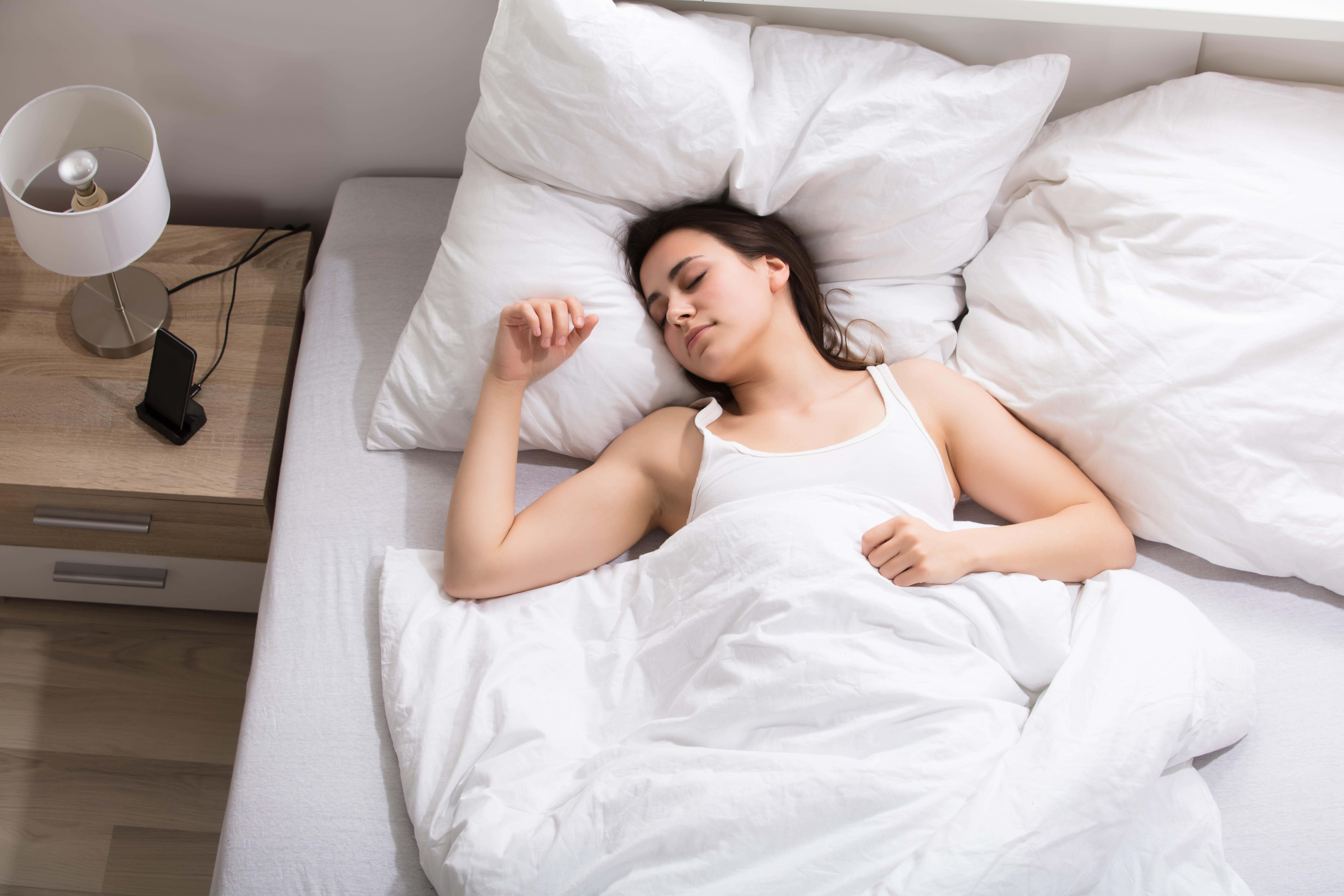This is how much sleep adults need per age group
Older adults spend less time in deep sleep and more in lighter sleep stages, leading to more frequent awakenings.

Your support helps us to tell the story
From reproductive rights to climate change to Big Tech, The Independent is on the ground when the story is developing. Whether it's investigating the financials of Elon Musk's pro-Trump PAC or producing our latest documentary, 'The A Word', which shines a light on the American women fighting for reproductive rights, we know how important it is to parse out the facts from the messaging.
At such a critical moment in US history, we need reporters on the ground. Your donation allows us to keep sending journalists to speak to both sides of the story.
The Independent is trusted by Americans across the entire political spectrum. And unlike many other quality news outlets, we choose not to lock Americans out of our reporting and analysis with paywalls. We believe quality journalism should be available to everyone, paid for by those who can afford it.
Your support makes all the difference.While adults generally need around seven to nine hours of sleep per night at any age, each stage of life comes with its own set of biological, cognitive and developmental needs, which can significantly affect our sleeping habits.
Alongside this, the stress and responsibilities of different stages of adulthood can drastically impact our quality of sleep.
Here’s what to keep in mind…
Early adulthood: 18-25
Young adults tend to go to bed later at night and prefer a lie-in in the morning (Alamy/PA)”During this age period, cognitive functions, emotional regulation and the maturation of the brain’s prefrontal cortex (responsible for decision-making and impulse control) are all heavily influenced by adequate sleep,” says Denise Iordache, sleep therapist and founder of JoySpace Therapy.
Therefore, between seven and nine hours of sleep every night is needed to support brain development, learning and memory consolidation.
“Young adults benefit from high melatonin production, meaning they find it easier to get to and stay asleep,” says Dr Hana Patel, NHS GP and resident sleep expert at Time4Sleep. “However, they are more likely to have shifting circadian rhythms, going to bed later at night and preferring to lie in in the morning.”
(Still!) Young adults: 26-44
Once people reach full adulthood, their bodies and brains are fully developed, and their circadian rhythms tend to stabilise.
“During this period, circadian rhythm stabilises, with most adults being able to maintain regular sleep patterns,” says Iordache. “Melatonin production starts to decline slightly with age, but sleep-wake cycles remain relatively stable.”
Many adults in this age range have busy schedules, so maintaining consistent bedtimes and wake-up times is important for overall health and wellbeing.
“Adequate sleep during this period is important for cognitive function, physical health, and stress management.” explains Theresa Schnorbach, psychologist and sleep expert at Emma – The Sleep Company. “However, work and family responsibilities may impact adults’ sleep schedules.”
Iordache adds: “Their bodies still recover well from sleep, but insufficient rest can lead to fatigue, affecting physical and mental health.”
Middle-age: 45-59
As people reach middle age, their body’s efficiency at repairing itself may start to decline.
“Those aged between 45-59 may need slightly more sleep to feel fully rested and recover from daily activities,” says Schnorbach. “They also might experience more difficulty falling and staying asleep.”
People in this age group might also start going to bed earlier. “Circadian rhythms may start to shift, with a tendency to feel tired earlier in the evening,” adds Iordache.
Hormonal changes can also have a big impact on middle aged people’s quality of sleep, especially in women who are going through perimenopause and menopause.
“During menopause, patients often report nights of disturbed sleep,” explains Patel. “This is common for people experiencing menopause, as swinging oestrogen levels can cause night sweats, heat intolerance, insomnia and occasionally nightmares.”
Mature adults: 60+
“During this life stage, sleep becomes crucial for maintaining cognitive function and immune health,” explains Iordache. “Aging bodies require more time to recover but factors like health conditions, medication use, and changes in circadian rhythms may affect sleep patterns.”
Older adults often experience a natural shift in circadian rhythms.
“Circadian rhythm often shifts earlier, leading to earlier bedtimes and wake times,” explains Schnorbach. “Melatonin production may also decrease.”
People over 60 are also more likely to experience sleeping issues. “Older adults are also more prone to conditions like sleep apnoea and insomnia, and many adults over 60 experience poor sleep,” says Patel.
How can people of all ages improve their quality of sleep?
Consistency is key. “Going to bed and waking up at the same time every day helps regulate your body’s internal clock, making it easier to fall asleep and wake up feeling refreshed,” says Schnorbach.
Make sure you are getting as much exposure to the sunlight during the day as possible, too.
“Natural sunlight exposure can boost your energy levels, improve mood, and regulate your sleep-wake cycle,” explains Schnorbach. “Sunlight helps your body produce serotonin, which later converts to melatonin, the hormone responsible for sleep.”
Engaging in relaxation techniques before bed can also help calm your mind and prepare you for sleep. “Incorporate calming activities like journaling or reading to help clear your mind and reduce stress,” suggests Schnorbach.